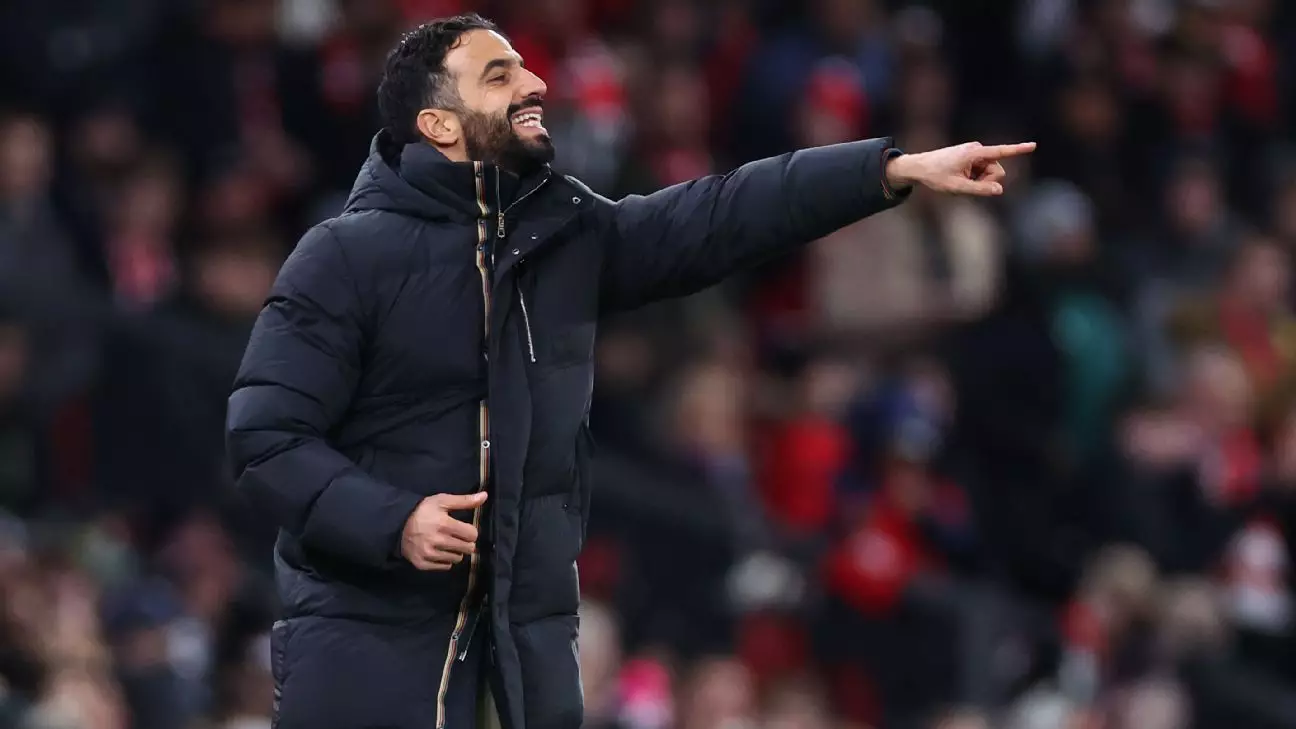Ruben Amorim’s inaugural period as the head coach of Manchester United has been marked by a palpable sense of unease. Following a narrow 3-2 victory over Bodo/Glimt in the Europa League, Amorim expressed feelings of anxiety and nervousness regarding his team’s adjustment to his tactical philosophy. This admission speaks volumes about the challenges that come with transitioning to a new managerial style in a high-stakes environment like Manchester United, a club under constant scrutiny and pressure.
As he embarks on this journey, Amorim faces the dual pressures of establishing his authority while simultaneously trying to build cohesion among a group of players he is just beginning to understand. His vulnerability in sharing his anxieties highlights the important human element often lost in discussions about sports management. For a manager, the fear of the unknown—both in terms of player performance and the team’s collective adaptability—can be overwhelming.
Tactical Adjustments and Team Selection
In the recent encounter with Bodo/Glimt, Amorim made six significant alterations to the squad that had previously drawn against Ipswich—a clear indication of his willingness to experiment. The introduction of players such as Lisandro Martínez and Tyrell Malacia not only indicates a shift in personnel but also serves as an attempt to enhance the team’s tactical framework. Amorim’s decision to frequently rotate his players underscores the complexity of his rebuilding efforts and the necessity of integrating fresh talent into the lineup.
Despite securing his first win, Amorim acknowledged the need for further adaptations as Manchester United prepares to face Everton in their upcoming Premier League clash. This recognition of the need for rotation, especially after a demanding match, showcases his tactical acumen but also unveils the physical demands being placed on players in his system. It raises an important question: can Amorim maintain performance levels without risking player fatigue?
Assessing Progress Amidst Challenges
While the win against Bodo/Glimt may offer a glimmer of hope, Amorim’s journey is still riddled with uncertainty. He noted identified improvements in ball quality, suggesting that the players are beginning to absorb his teachings. However, the anxiety surrounding their fitness and the team’s collective synergy looms large. According to Amorim, players‘ fatigue, including that of key figures like Rasmus Hojlund, presents a significant hurdle as they navigate his tactical demands.
The road ahead for Amorim is fraught with trials, not just in terms of gameplay, but also in building a resilient and cohesive unit that can execute his vision reliably. The upcoming match against Everton will serve as a critical test for both the team’s tactical capabilities and Amorim’s managerial adaptability. The stakes are high, and success in this match could be a turning point, lending both the coach and players the confidence they desperately need.
Ruben Amorim stands at the forefront of a challenging but potentially rewarding period for Manchester United. His openness about feelings of anxiety highlights the emotional weight carried by coaches in high-pressure roles. As he navigates this transition, the performance against Everton and forthcoming matches will likely define not only his early tenure but also the future trajectory of the team under his guidance. The path is uncertain, but with the right adjustments and a little patience, Amorim could turn these early-season jitters into a foundation for long-term success.


Napsat komentář